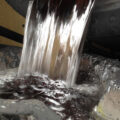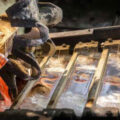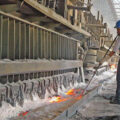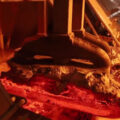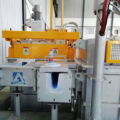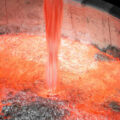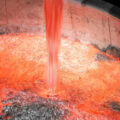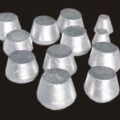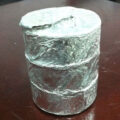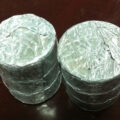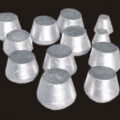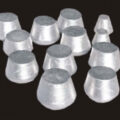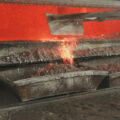In the field of defense technology such as aerospace, the application of large aluminum alloy components is increasing, and the requirements for components are getting higher and higher. In addition to ensuring its chemical composition, mechanical properties and dimensional accuracy, castings are also not allowed to have defects such as shrinkage, porosity, leakage, and slag inclusion. The purification of aluminum alloy melt is one of the basic guarantee measures for the production of high-quality aluminum castings, and it is also the main method to improve the comprehensive performance of aluminum alloys. The refining effect of aluminum alloy melt has an important impact on the formation of porosity, pores, inclusions, etc., and directly affects the physical properties, mechanical properties and service properties of aluminum castings.
Effective purification of aluminum alloy melt is the primary prerequisite for obtaining high-quality aluminum alloy components. Without high-quality aluminum alloy melt, even if the subsequent metamorphic grain refinement treatment is effective, and the processing and forming control is advanced, high-quality castings are difficult to imagine. Moreover, the defects existed from the beginning, even if the reasonable casting process and heat treatment process are adopted in the future, the defects will still exist stubbornly and difficult to make up. Therefore, people attach great importance to the gas and inclusions in the cast aluminum alloy melt, and take various measures to eliminate the gas and inclusions in the aluminum alloy melt. AdTech offers fluxes, online degassing unit, and CFF filtering unit for the purification of aluminum alloy.
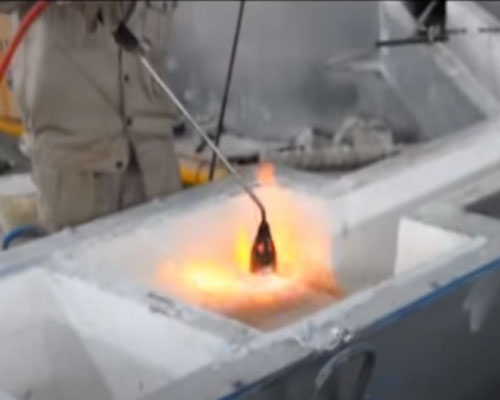
At present, the comprehensive treatment of aluminum alloy melting and purification and homogeneous crystallization is considered to be a common technical basic problem that must be solved to obtain high-quality aluminum alloy. There are many related studies, such as: various aluminum melt degassing and slag purification methods, various electric and magnetic field treatment methods on the melt, and the study of the structure of the alloy melt and the influence of the thermal history of the melt on the solidification structure, rapid solidification/powder smelting aluminum alloy research, etc.
At the same time, smelting deterioration and purification in the production process of cast aluminum alloys are still the main links that cause environmental pollution. In the aluminum alloy deterioration, NaCl, NaF, KCl, and Na3AIF6 are still used in large quantities. These salts have a serious corrosive effect on the environment and affect the health of workers. , The bones can cause damage. Due to the short duration of Na deterioration effect, Sr (strontium) has been used as a long-term deterioration agent to replace Na deterioration in recent years.
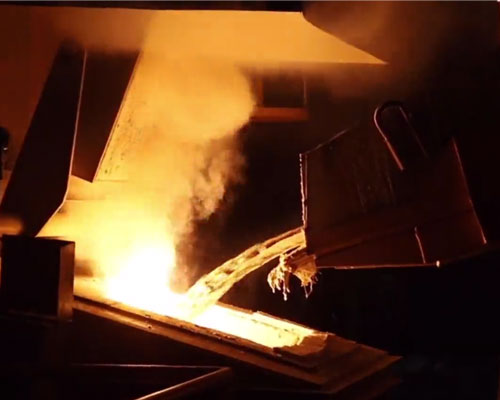
In order to improve the mechanical properties of aluminum alloys, Al-Ti and Al-Ti-B alloys are commonly used as grain refiners to achieve grain refinement. However, the preparation of A-Ti or Al-Ti-B alloys will also pollute the environment. Therefore, the purification of aluminum alloy melt has once again become a problem that must be addressed, and more in-depth research is necessary.


